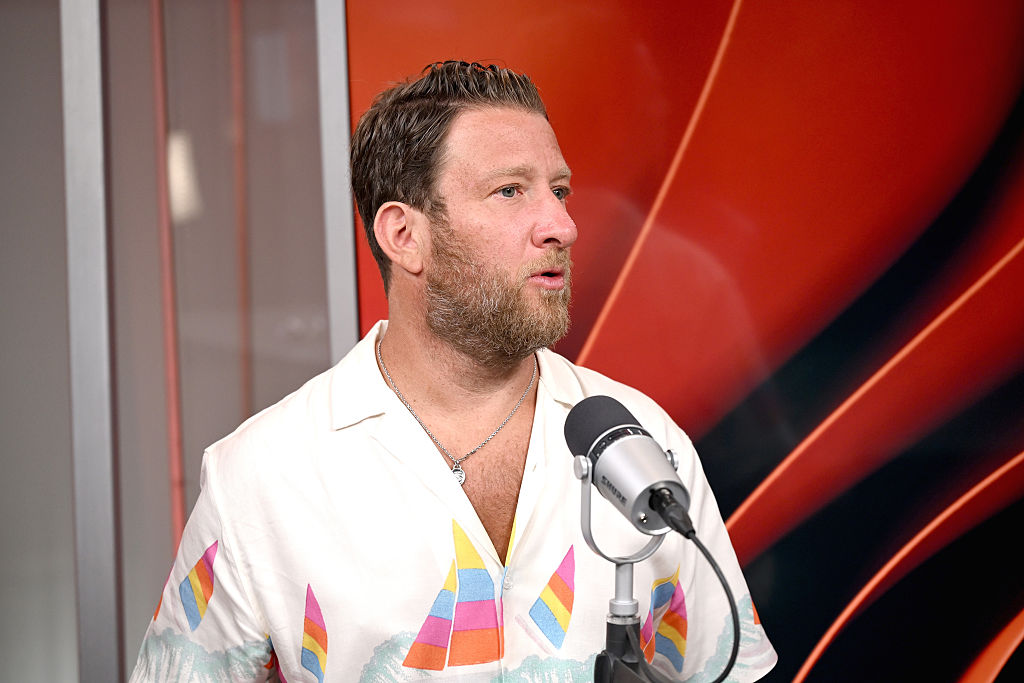In a powerful statement that has captured both public attention and sparked discussions around accountability, Dave Portnoy, the founder of Barstool Sports, expressed his outrage over an anti-Semitic sign displayed at his company’s bar in Philadelphia. Facing significant backlash, Portnoy’s passionate response was driven by his personal connection to the issue, as he identifies as Jewish and has been a vocal critic of anti-Semitism.
An Incident That Shook the Community
The incident occurred at Barstool’s Sansom Street bar in Center City, Philadelphia, where a video surfaced showing staff members holding a sign that read “F*** the Jews.” This shocking act drew immediate condemnation, particularly from Portnoy himself, who described his visceral anger upon learning about the sign. In an emergency press conference streamed across his social media platforms, Portnoy stated, “I’ve been shaking. I’ve been so mad for the last two hours. This is why the emergency press conference is late, because I was so over the top. I’m going to f***ing make it my life f***ing mission to ruin these people.”
Portnoy’s strong emotional response reflects not only his personal values but also a broader concern for how such offensive behavior can perpetuate hate and discrimination in society. His commitment to addressing the issue and ensuring accountability among staff was clear as he vowed to track down those responsible for the incident.
Quick Action Taken: Sackings and Beyond
Within hours of the incident, Portnoy announced via social media that the staff members involved had already been fired. In a follow-up video, he reiterated his determination to seek justice, stating, “I’m coming for your throat,” highlighting the seriousness with which he approached the situation. Furthermore, he called for educational efforts for the culprits, suggesting they could gain insight by visiting historic sites like Auschwitz, aimed at understanding the impact of their actions.
“We’re going to send these kids to Auschwitz, and they’re going to do a tour of the concentration camps and hopefully learn something, and maybe their lives aren’t ruined and they think twice.” – Dave Portnoy
The Public’s Reaction: Support and Criticism
Portnoy’s response has elicited a mixed reaction from the public. While many praised him for standing up against anti-Semitism, others questioned the effectiveness of such extreme measures. Critics argue that resorting to harsh punishments and emotional outbursts may not foster the desired educational outcomes. The incident has sparked discussions on how to effectively handle situations of hate speech within public establishments.
Broader Context: Rising Anti-Semitism
This incident is part of a troubling trend of increased anti-Semitic incidents worldwide. Portnoy himself noted in his videos that he has experienced more hate in recent years, particularly since the events of October 7. His emotional remarks highlight the need for society to confront and address the root causes of such hatred.
The role of social media in amplifying such messages also came under scrutiny. Videos and posts can go viral in moments, spreading incendiary messages that may not be easily contained. Portnoy’s situation exemplifies how platforms can be double-edged swords—providing a voice for outrage while also perpetuating hate when not managed responsibly.
Looking Forward: Opportunities for Change
In the aftermath of this incident, Portnoy has a vital opportunity to harness his platform positively. His call for education over punishment, while initially met with incredulity, opens a path for dialogue about anti-Semitism and its impacts. Creating educational programs and community outreach initiatives could serve as constructive steps toward fostering a more inclusive environment.
Ultimately, understanding and addressing the complex web of issues surrounding anti-Semitism requires a concerted effort from individuals and establishments alike. The responsibility falls on leaders like Portnoy to guide their businesses and communities toward greater awareness and change.
A Community Response: Supporting Jewish Voices
As the Barstool story unfolds, many Jewish advocates and community leaders have voiced their support for Portnoy on social media, emphasizing solidarity against hate. This collective response signifies a united front against manifestations of anti-Semitism and a push for responsible action in the wake of such incidents. Employees within Barstool have also publicly backed their boss, highlighting the importance of standing against hate and supporting victims of discrimination.
Conclusion: A Moment of Accountability
Dave Portnoy’s firm stance against the anti-Semitic sign at his Philadelphia bar underscores the critical need for accountability in the face of hate. While the immediate actions taken demonstrate a commitment to rectifying the situation, the broader implications reveal essential conversations about education, personal responsibility, and community support. As society grapples with the complexities of addressing hate speech, Portnoy’s reaction offers a significant moment for reflection, urging both personal and communal accountability in ensuring such incidents are not tolerated.

